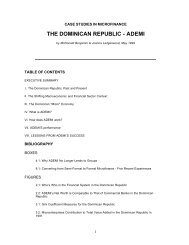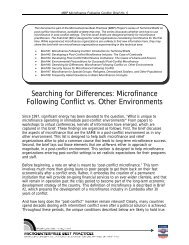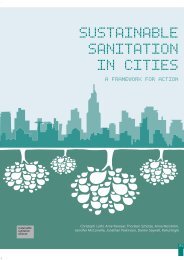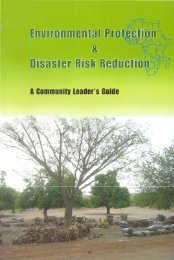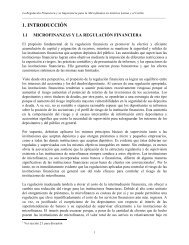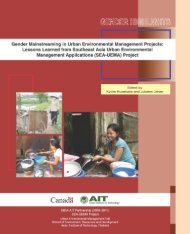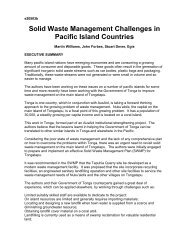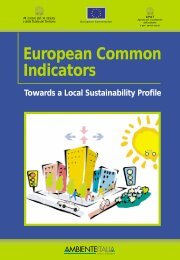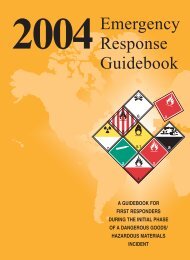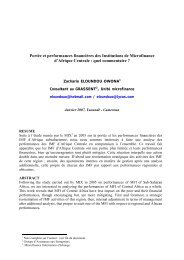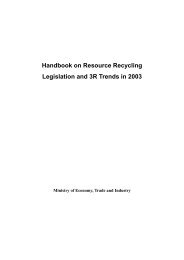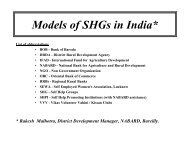The International Implementation Scheme (IIS) - Unesco
The International Implementation Scheme (IIS) - Unesco
The International Implementation Scheme (IIS) - Unesco
You also want an ePaper? Increase the reach of your titles
YUMPU automatically turns print PDFs into web optimized ePapers that Google loves.
DESD <strong>International</strong> <strong>Implementation</strong> <strong>Scheme</strong> (<strong>IIS</strong>)<br />
Cultural diversity and intercultural understanding: Many opportunities for education and<br />
sustainable human development are undermined by the lack of tolerance and intercultural<br />
understanding, upon which peace is founded. This perspective must inform not only the content<br />
of educational programmes, but also characterise teacher/learner and learner/learner<br />
relationships. Learning situations of all kinds are ideal opportunities for practising and deepening<br />
respect for and understanding of diversity. Local knowledge is a repository of diversity and a key<br />
resource in understanding the environment and in using it to the best advantage for current and<br />
future generations. Bringing such knowledge into the learning context enables learners to draw<br />
scientific principles and social insights from their immediate environment, increasing the<br />
connection between school and community, between exogenous and endogenous knowledge.<br />
Local knowledge is closely associated with ways of articulating it in the local language – the use<br />
of local languages in education, together with others, is a factor not only in the healthy cognitive<br />
development of children, but also in the appreciation, validation and use of what can be learnt<br />
directly from daily life and the local community.<br />
For instance, Small Island Developing States are long-standing crossroads of human cultural<br />
interaction. <strong>The</strong>ir histories testify to the rich and important economic, social and cultural<br />
exchanges that small islands have given the world. Many island peoples and communities have<br />
an in-depth appreciation of the cultural and biophysical dimensions of development.<br />
Health: issues of development, environment and health are closely entwined – ill health<br />
hampers economic and social development, triggering a vicious cycle that contributes to<br />
unsustainable resource use and environmental degradation. A healthy population and safe<br />
environments are important pre-conditions for sustainable development. Hunger, malnutrition,<br />
malaria, water-borne diseases, drug and alcohol abuse, violence and injury, unplanned<br />
pregnancy, HIV/AIDS and other sexually transmitted infections are just some of the problems<br />
that have enormous implications for health. <strong>The</strong> school environment itself must be safe and<br />
healthy. Schools should act not only as centres for academic learning, but also as supportive<br />
venues for the provision of essential health education and services, in collaboration with parents<br />
and the community.<br />
HIV/AIDS: the ravages of HIV and the AIDS pandemic in Africa and rising incidence in Asia and<br />
Europe undermine sustainable development and educational processes. It is urgent to look at<br />
alternative approaches to education in situations where orphans, missing teachers, the burden<br />
of care and overwhelmed social services make traditional educational approaches dysfunctional<br />
or irrelevant. Sustainable development itself takes on a different complexion in such<br />
circumstances and will require specially tailored measures and support. Nevertheless, education<br />
remains one of the best hopes to stimulate the behaviour changes and the cooperation needed<br />
to stem the pandemic.<br />
Governance: at local, national and international levels, sustainable development will best be<br />
promoted where governance structures enable transparency, full expression of opinion, free<br />
debate and broad input into policy formulation. Such a framework will give the best opportunity<br />
for ESD to bear fruit in terms of the full participation of citizens in setting parameters for<br />
sustainable development and good governance. ESD will thus consciously model and explain<br />
this framework.<br />
3.2 Environmental perspectives<br />
Natural resources (water, energy, agriculture, biodiversity): Building on more than 30 years<br />
of experience in environmental education, ESD must continue to highlight the importance of<br />
addressing these issues as part of the broader agenda of sustainable development. In<br />
particular, the links with societal and economic considerations will enable learners to adopt new<br />
behaviours in the protection of the world’s natural resources, which are essential for human<br />
development and indeed survival. Humanity is dependent on the goods and services provided<br />
by ecosystems. Thus, the protection and restoration of the Earth’s ecosystems is an important<br />
challenge.<br />
20<br />
2005



